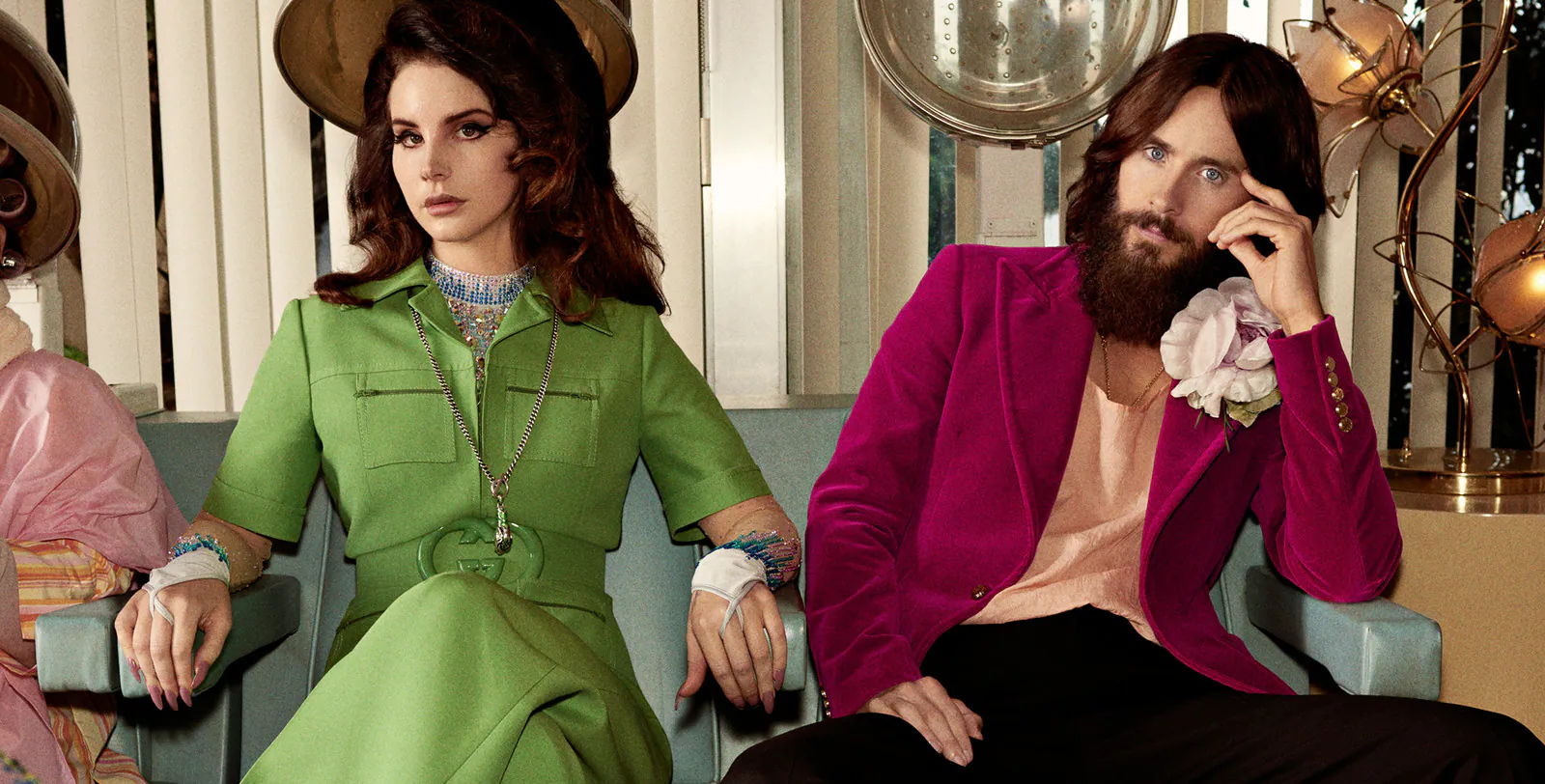Sustainable fashion is an approach to clothing production and consumption that prioritizes environmental and social responsibility.
As the fashion industry grapples with the detrimental effects of fast fashion, it has become increasingly important for consumers, designers, and manufacturers to work together in promoting sustainable practices.
What Is Sustainable Fashion?
Sustainable fashion is an approach to clothing production and consumption that prioritizes environmental and social responsibility.
It encompasses the use of eco-friendly materials, ethical manufacturing processes, and mindful consumption habits to minimize the fashion industry’s negative impact on the planet and its inhabitants.
1. Sustainable Fabrics and Materials
Sustainable fabrics are essential for minimizing the environmental impact of clothing production. Natural and organic materials, such as organic cotton, hemp, and bamboo, are grown without harmful chemicals and require fewer resources than conventional materials.
Recycled and innovative materials, like recycled polyester, Tencel (Lyocell), and Pinatex (pineapple leather), also contribute to reduced environmental footprints and improved social conditions for workers.
2. Ethical Production and Manufacturing Processes
Ethical production and manufacturing processes prioritize fair labor practices, such as ensuring fair wages and working conditions, and preventing child labor and forced labor.
Additionally, eco-friendly production methods focus on water and energy conservation and waste reduction. Certifications and standards, such as Fair Trade Certified, Global Organic Textile Standard (GOTS), and Cradle to Cradle Certified, help consumers identify brands committed to these principles.
3. Supporting Sustainable Fashion Brands
To support sustainable fashion brands, consumers should research and identify companies that demonstrate transparency in production and sourcing and commit to fair labor practices.
Some examples of sustainable fashion brands include Patagonia, Eileen Fisher, Everlane, Stella McCartney, and People Tree. By choosing to support these brands, consumers can encourage change within the industry.
4. Adopting Sustainable Fashion Habits

Mindful shopping practices can significantly contribute to a more sustainable wardrobe. Before shopping, make a list of needed items, prioritize quality over quantity, and research the ethics and sustainability efforts of each brand.
Additionally, support secondhand and vintage stores, and consider renting or borrowing clothes for special occasions.
Proper care and maintenance of clothing can also help promote sustainability. Utilize eco-friendly washing and drying techniques, repair and mend clothes, and participate in clothing swaps and sharing. When it’s time to part with an item, consider recycling and upcycling old clothes.
Why Is Sustainable Fashion Important? How Does Sustainable Fashion Help the Environment?
Sustainable fashion is important as it mitigates the industry’s environmental impact, promotes social responsibility, and reduces waste.
By raising consumer awareness and ensuring long-term viability, sustainable fashion fosters a more eco-friendly and ethically conscious approach to clothing production and consumption, benefiting both the planet and its inhabitants.
1. Combatting Negative Environmental Impact of the Fashion Industry

The fashion industry ranks among the most polluting industries worldwide, contributing significantly to greenhouse gas emissions, water pollution, and resource overconsumption.
It accounts for approximately 3% of global carbon emissions and 20% of global water pollution. Additionally, the industry consumes vast amounts of resources, with a single cotton t-shirt requiring 2,700 liters of water to produce.
By choosing sustainable fashion, you support eco-friendly materials and production methods, mitigating these negative consequences.
2. Reducing Waste: Embrace the Circular Economy
The fashion industry generates enormous textile waste, with an estimated 92 million tons produced annually, much of which ends up in landfills.
Sustainable fashion promotes a circular economy, focusing on recycling, upcycling, and repurposing materials to minimize waste. Initiatives like the Ellen MacArthur Foundation’s Make Fashion Circular aim to accelerate the adoption of circular fashion practices industry-wide.
3. Promoting Social Responsibility: Support Fair Labor Practices
Fast fashion frequently exploits workers with low wages and poor working conditions. For example, the average garment worker in Bangladesh earns only $68 per month, which is well below the living wage of $104.
Additionally, the 2013 Rana Plaza disaster in Bangladesh, which claimed over 1,100 lives, exposed the hazardous conditions faced by many garment workers.
Embracing sustainable fashion means valuing the ethical treatment of workers and ensuring safe, healthy environments for them.
4. Increase Consumer Awareness: Make Informed Choices
Sustainable fashion raises awareness about the industry’s negative impacts, urging consumers to make more informed choices. By adopting sustainable habits, individuals can drive positive change within the industry.
5. Preserving Long-term Viability: Protect Resources
for Future Generations Unsustainable practices within the fashion industry can result in resource depletion and environmental degradation, adversely affecting future generations. Sustainable fashion safeguards the industry’s long-term viability, conserving resources and ecosystems for future use.
Overall, sustainable fashion is essential for creating a more environmentally friendly and socially responsible clothing industry, benefiting the planet and its inhabitants.
Sustainable Fashion Choices for Consumers
Sustainable fashion choices involve selecting clothing and accessories that have a lower environmental impact, promote ethical labor practices, and support long-lasting, high-quality products. Here are some tips to make more sustainable fashion choices:
- Buy from ethical brands: Research and support companies prioritizing eco-friendly materials, fair labor practices, and transparent supply chains. We have listed the 10 best sustainable clothing brands in the next chapter.
- Choose eco-friendly fabrics: Opt for natural, organic, or recycled materials, such as organic cotton, hemp, bamboo, or Tencel.
- Go for timeless designs: Invest in classic, versatile pieces that can be worn for multiple seasons and withstand passing trends.
- Care for your clothes: Follow care instructions, repair minor damage, and maintain your clothes properly to extend their lifespan.
- Embrace second-hand shopping: Visit thrift stores, consignment shops, or online platforms like Depop and Poshmark to find pre-loved items.
- Practice minimalism: Reduce your overall consumption by focusing on essential, high-quality items that can be mixed and matched easily.
- Participate in clothing swaps: Organize or join events where people can exchange clothes, giving new life to garments that would otherwise be discarded.
- Rent or borrow: For special occasions or short-term needs, consider renting or borrowing clothes from friends or rental services like Rent the Runway.
- Upcycle or repurpose: Give old clothes a new life by altering, customizing, or repurposing them into new garments or accessories.
- Dispose of clothes responsibly: Donate or recycle unwanted clothing instead of sending them to landfills. Many organizations and retailers have clothing recycling programs.
By incorporating these sustainable fashion choices into your lifestyle, you can contribute to a more eco-friendly and ethical fashion industry.
Best Sustainable Clothing Brands
The 10 best sustainable clothing brands are those that prioritize environmental and social responsibility through eco-friendly materials, ethical manufacturing, and transparent practices.
Here are ten popular options, ordered from the most affordable to the most expensive:
- Kotn: High-quality basics made from ethically sourced Egyptian cotton, focusing on fair labor practices and supply chain transparency.
- Price range: $25 – $100
- Style: Minimalist basics
- Availability: Online store with international shipping, including the US
- Alternative Apparel: Comfortable and casual clothing made from eco-friendly materials, committed to responsible manufacturing and packaging.
- Price range: $20 – $80
- Style: Casual and comfortable clothing
- Availability: Online store with international shipping, including the US, and select retailers
- Everlane: Ethically-made basics, transparent pricing, supply chain information, and eco-friendly materials.
- Price range: $15 – $250
- Style: Classic, timeless basics
- Availability: Online store with international shipping, including the US, and physical locations in select cities
- Girlfriend Collective: Activewear from recycled materials, such as water bottles and fishing nets, while maintaining ethical labor practices.
- Price range: $38 – $88
- Style: Activewear and athleisure
- Availability: Online store with international shipping, including the US
- People Tree: Ethical and sustainable fashion pioneer, featuring Fair Trade and GOTS certified products made with organic and eco-friendly fabrics.
- Price range: $35 – $200
- Style: Casual, contemporary clothing
- Availability: Online store with international shipping, including the US
- Reformation: Stylish clothing that combines sustainability with fashion, using eco-friendly materials and emphasizing ethical manufacturing and carbon offsets.
- Price range: $50 – $400
- Style: Trendy, feminine, and stylish clothing
- Availability: Online store with international shipping, including the US, and physical locations in select cities
- Armedangels: German brand providing eco-friendly and Fair Trade Certified clothing, using organic and sustainable materials like Tencel and organic cotton.
- Price range: $25 – $150
- Style: Modern, casual clothing
- Availability: Online store with international shipping, including the US
- Eileen Fisher: Timeless designs, high-quality materials, sustainable fabrics, and a take-back and recycling program.
- Price range: $50 – $500
- Style: Timeless, sophisticated designs
- Availability: Online store with international shipping, including the US, Eileen Fisher boutiques, and select department stores
- Patagonia: Sustainable outdoor wear, Fair Trade Certified products, and use of recycled materials.
- Price range: $30 – $700
- Style: Outdoor and adventure wear
- Availability: Online store with international shipping, including the US, Patagonia retail locations, and select retailers
- Stella McCartney: Luxury brand committed to sustainability, using vegan-friendly materials and focusing on circularity and waste reduction.
- Price range: $200 – $4,000
- Style: Luxury, high-end fashion
- Availability: Online store with international shipping, including the US, Stella McCartney boutiques, and select luxury retailers
Note that prices within each brand may vary depending on the specific product, and some brands may offer sales or discounts that affect their relative affordability.
The Future of Sustainable Fashion
Technology and innovation will play a vital role in shaping the future of sustainable fashion. Advancements in 3D printing, digital design, and innovative materials can help reduce waste and minimize the industry’s environmental impact.
Education and awareness, along with policy changes and industry collaboration, will also be essential for promoting sustainable practices.
Conclusion
Sustainable fashion is crucial for mitigating the environmental and social impact of the fashion industry.
By supporting eco-friendly brands and adopting sustainable habits, consumers, designers, and manufacturers can work together to create positive change and ensure a more ethical and environmentally friendly future for fashion.





